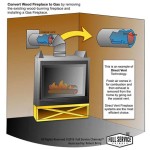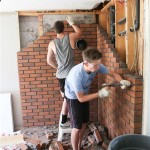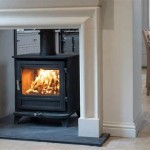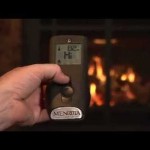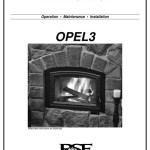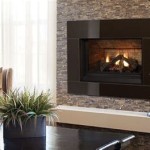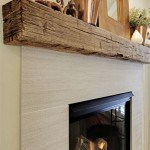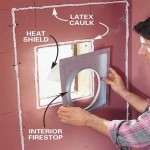Gas Fireplace Heat Shield: Protecting Your Home and Family
Gas fireplaces offer a cozy and inviting ambiance, but they also generate significant heat. To mitigate the risk of fire hazards and damage to surrounding materials, a crucial element is the gas fireplace heat shield. These shields serve as a protective barrier, safeguarding the area around the fireplace from excessive temperatures. This article delves into the importance and various aspects of gas fireplace heat shields, providing valuable insights for homeowners.
Understanding the Need for a Gas Fireplace Heat Shield
Gas fireplaces operate by burning natural gas, releasing substantial heat. While this heat provides warmth and comfort, it can also pose a safety risk and lead to damage if not properly contained. Without a heat shield, the direct heat from the flames can cause: *
Fire Hazards:
Hot surfaces adjacent to the fireplace can become ignition sources, posing a risk of igniting flammable materials, such as curtains, furniture, or even the surrounding walls. *Material Degradation:
The intense heat can deteriorate nearby materials, causing warping, discoloration, and even cracking in wood, paint, or drywall. *Uncomfortable Temperatures:
The proximity of the fireplace to other areas can raise temperatures significantly, creating discomfort and making it difficult to enjoy the fireplace.A gas fireplace heat shield addresses these concerns by acting as a barrier between the heat source and susceptible materials. This barrier effectively diverts the heat away from the surrounding environment, ensuring a safe and comfortable fireplace experience.
Types of Gas Fireplace Heat Shields
Gas fireplace heat shields come in various forms, each designed for specific applications. Here are some common types:1. Metal Heat Shields:
Metal heat shields are typically constructed using steel or aluminum, offering excellent heat resistance. They are available in various sizes and shapes to fit different fireplace installations. Metal shields can be mounted directly to the fireplace, offering a secure and durable solution.
2. Glass Heat Shields:
Glass heat shields provide a clear view of the flames while offering thermal protection. Tempered glass panels are commonly used, offering high heat resistance and durability. Glass shields are often favored for their aesthetic appeal, seamlessly blending with the fireplace design.
3. Heat-Resistant Paint:
For existing fireplaces without a dedicated shield, applying heat-resistant paint to the surrounding walls and surfaces can provide a layer of protection against the heat. This paint is specifically formulated to withstand high temperatures, minimizing the risk of material damage.
4. Fire Screens:
Fire screens are primarily designed for aesthetic purposes but also offer a degree of heat protection. These screens feature a mesh design that allows for flame visibility while reducing direct heat exposure. Fire screens are not as effective as dedicated heat shields, but they provide a basic level of safety.
Choosing the Right Gas Fireplace Heat Shield
Selecting the appropriate gas fireplace heat shield depends on factors such as: *
Fireplace Type:
Different fireplace models may require specific shield configurations or mounting methods. *Installation Space:
The available space around the fireplace will influence the size and shape of the heat shield. *Aesthetic Preferences:
The chosen shield should complement the overall fireplace design and home decor. *Budget:
Heat shields range in price depending on materials, construction, and size.For expert guidance on selecting the right heat shield for your specific fireplace and needs, consulting a qualified fireplace installer or contractor is highly recommended.
Installation and Maintenance
Correct installation is crucial for maximizing the effectiveness of a gas fireplace heat shield. Following the manufacturer's instructions and guidelines is essential. For complex installations, seeking professional assistance from a certified technician or installer is recommended to ensure proper mounting, alignment, and clearance.
Regular maintenance is vital to ensure the safety and longevity of the shield. Check for signs of damage, such as cracks, warping, or loosening of fasteners. Inspect the shield regularly for any build-up of soot or dust, and clean it accordingly.
In conclusion, a gas fireplace heat shield is an essential safety feature and a valuable investment for homeowners. It protects surrounding materials from excessive heat, minimizes fire hazards, and ensures a comfortable fireplace experience. By understanding the different types of shields, factors influencing selection, and proper installation and maintenance practices, homeowners can enjoy the warmth and ambiance of their gas fireplaces with peace of mind and safety.

Fireplace Hood Canopy Or Heat Deflector Project Small House

Fireplace Hood Canopy Or Heat Deflector Project Small House

Any Of Mantle Heat Shield Hearth Com Forums Home Fireplace Mantels Remodel

Fireplace Hoods Heat Deflectors Custom

How To Protect A Mantel

39 Inch Standard Fireplace Hood 24 Gauge Steel

Fireplace Hood Canopy Or Heat Deflector Project Small House

Priorfire Retrofit Fireplace Saversystems

Fireplace Surrounds Heat Shields For Stoves Scarlett Fireplaces

Another Interesting Heat Shield Wood Stove Hearth Surround
Related Posts

